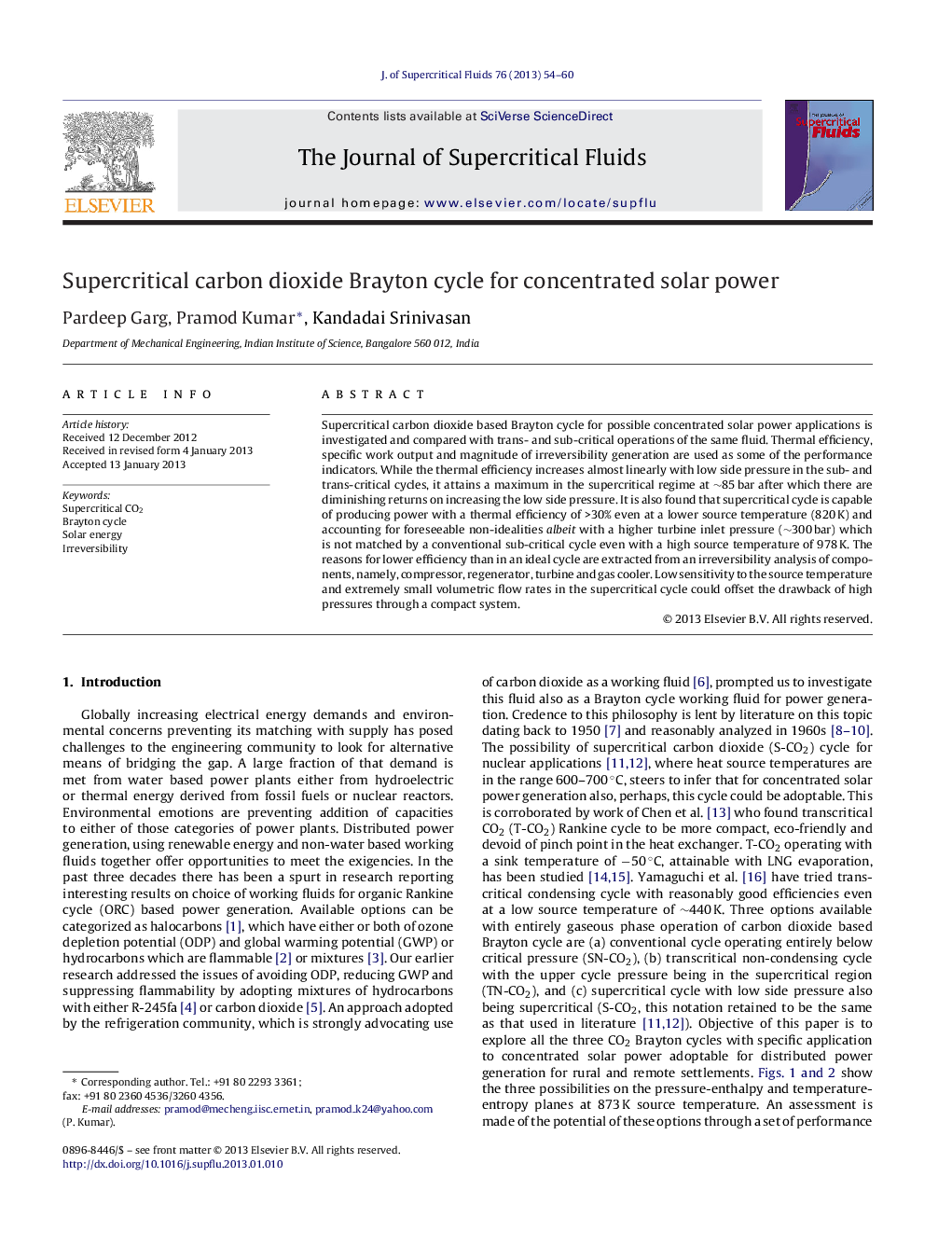| کد مقاله | کد نشریه | سال انتشار | مقاله انگلیسی | نسخه تمام متن |
|---|---|---|---|---|
| 230860 | 1427401 | 2013 | 7 صفحه PDF | دانلود رایگان |

Supercritical carbon dioxide based Brayton cycle for possible concentrated solar power applications is investigated and compared with trans- and sub-critical operations of the same fluid. Thermal efficiency, specific work output and magnitude of irreversibility generation are used as some of the performance indicators. While the thermal efficiency increases almost linearly with low side pressure in the sub- and trans-critical cycles, it attains a maximum in the supercritical regime at ∼85 bar after which there are diminishing returns on increasing the low side pressure. It is also found that supercritical cycle is capable of producing power with a thermal efficiency of >30% even at a lower source temperature (820 K) and accounting for foreseeable non-idealities albeit with a higher turbine inlet pressure (∼300 bar) which is not matched by a conventional sub-critical cycle even with a high source temperature of 978 K. The reasons for lower efficiency than in an ideal cycle are extracted from an irreversibility analysis of components, namely, compressor, regenerator, turbine and gas cooler. Low sensitivity to the source temperature and extremely small volumetric flow rates in the supercritical cycle could offset the drawback of high pressures through a compact system.
.Figure optionsDownload as PowerPoint slideHighlights
► Evaluation of super-, trans- and sub-critical CO2 Brayton cycles for possible applications in concentrated solar power.
► Realistic assessment of efficiencies accounting for possible irreversibilities.
► Quantification of irreversibilities.
► Establishing supercritical CO2 cycle as a high efficiency alternative provided the high pressure contingency is taken care of.
Journal: The Journal of Supercritical Fluids - Volume 76, April 2013, Pages 54–60